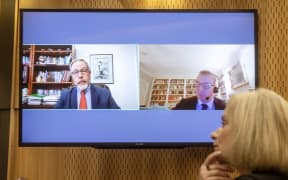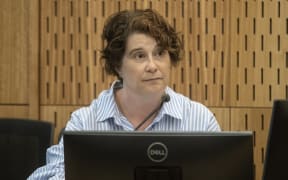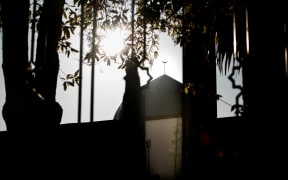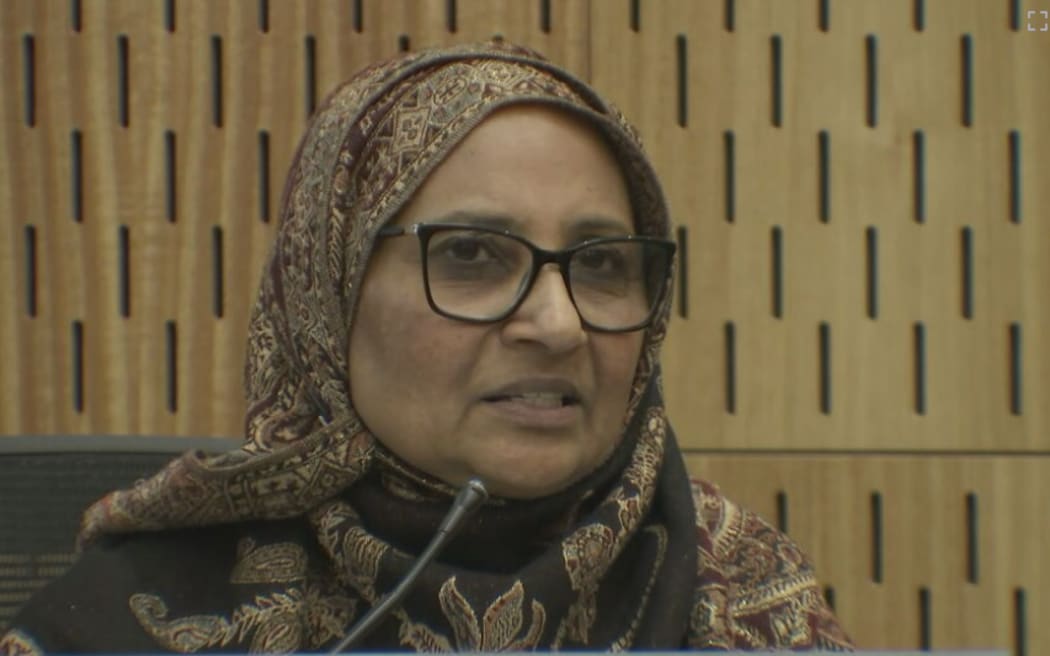
Saira Patel. Photo: Pool/Newshub
A woman who was forced to leave the side of her bleeding husband following the terror attack at Christchurch's Linwood Islamic Centre only discovered he had died the following day after seeking help from then-prime minister Jacinda Ardern.
Saira Patel's husband Musa Patel was one of seven people who died after being shot at the Linwood Islamic Centre, following the massacre at nearby Al Noor Mosque on 15 March 2019.
Supported by her son, Patel told the inquest into the deaths that she and her husband were praying in separate parts of the mosque on the day of the attack.
Patel said she thought a tyre had blown when she heard a loud bang. A baby began to cry, and she could soon smell gunpowder.
She yelled, "Someone is shooting, someone is shooting" as people ran to escape.
When Patel found her bleeding husband, she told the Coroners Court she could hear him saying his "last prayer" as if he knew he was about to die.
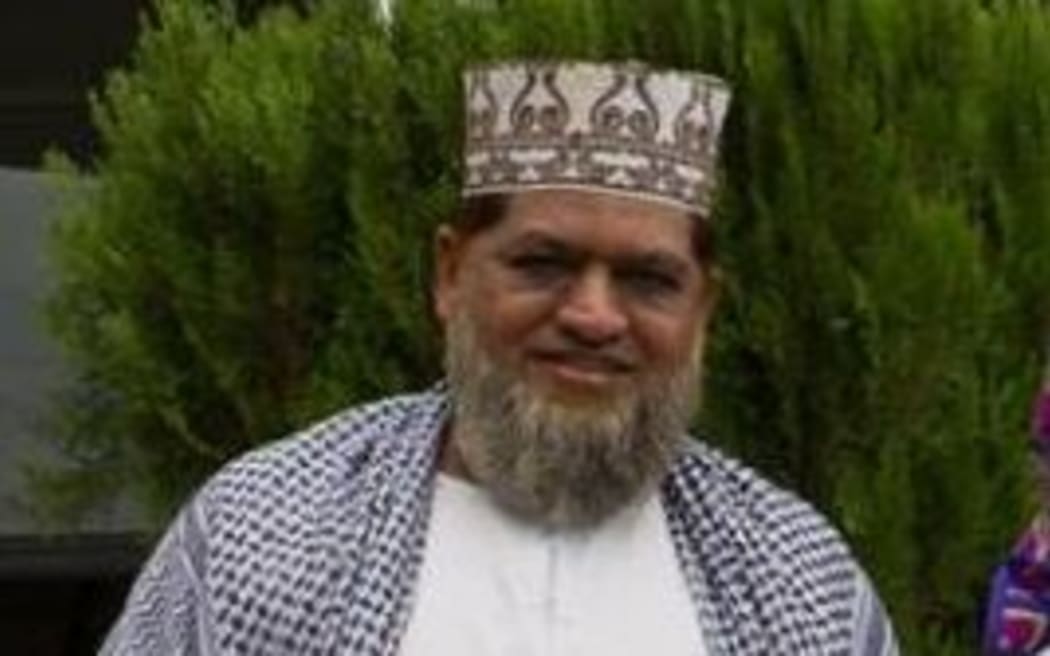
Musa Patel died at Linwood Islamic Centre on 15 March 2019. Photo: Facebook/ US Embassy Suva
She said she was forced to leave when police arrived and started treating Musa Patel, an order that distressed her to this day.
"I think any dying person who is about to leave this world would be very desperately craving and needing to be close to their loved ones. My presence during his final moments would have made a big difference in my life and I think maybe his last moments of departing this world," she said.
She did not know her husband had died until the following day, when she approached then-prime minister Jacinda Ardern, who led her to a counsellor.
Patel said the counsellor showed her a photo of an unidentified man in hospital who was not her husband.
"I knew then that my husband was dead. There was no-one else who could have identified him, and this last unidentified man was my last hope," she said.
Patel thanked the doctors and paramedics who did everything they could to console her husband in his final moments.
"I would like to thank them from the bottom of my heart," she said.
"I was trying to be with him in that last moment but maybe they were chosen to be with him."
Dr Alison Wooding from nearby Piki Te Ora Medical Centre was one of the doctors who treated Musa Patel when staff went to the mosque to help the injured.
She told the court he was meant to be the first victim taken to hospital but realised he had died after he was moved onto a stretcher.
Wooding said she and others were talking to Musa Patel the entire time they cared for him, but she did not recall him ever responding.
Police officers gave evidence on Tuesday saying Musa Patel had been able to communicate with them at first but his condition deteriorated over time.
Wooding told the court she felt apprehensive and worried about the situation at the mosque, but safe and protected between armed and vigilant police officers.
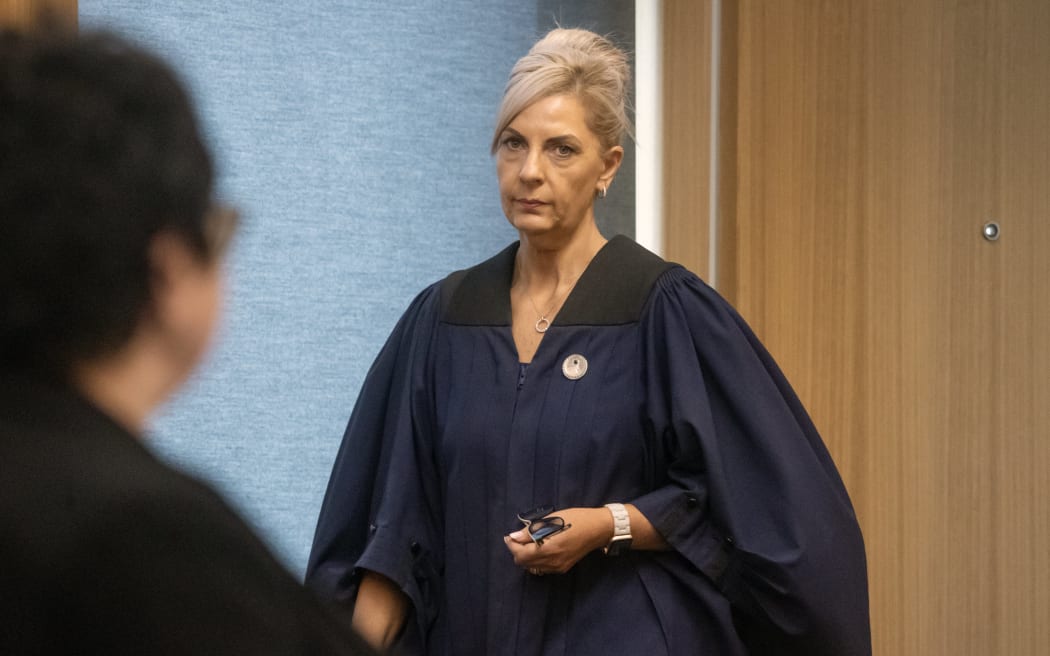
Deputy chief coroner Brigitte Windley. Photo: The Press / Iain McGregor
'Significant blind spot' relating to St John emergency response team - coroner
The coroner has queried a "significant blind spot" in the way St John ambulance officers work with specialist paramedics trained to work in dangerous situations.
Deputy chief coroner Brigitte Windley questioned St John duty manager Bruce Chubb about the organisation's response massacre.
Two Special Emergency Response Team (SERT) paramedics were among ambulance officers who went to the scene of the shooting in Linwood Avenue.
No-one from St John attended the Al Noor scene in a SERT capacity.
Chubb told the Coroners Court that SERT teams worked under police and it was not uncommon for St John not to know when they had been requested, where they were, or what they were doing.
In response, coroner Windley said: "My concern is that that creates a significant blind spot for St John, doesn't it?"
"Isn't it that these are critical resources in terms of closing that care gap for people who are dying and injured and being able to get a response in, and you've got no visibility about where they are and even if in fact they've been deployed?"
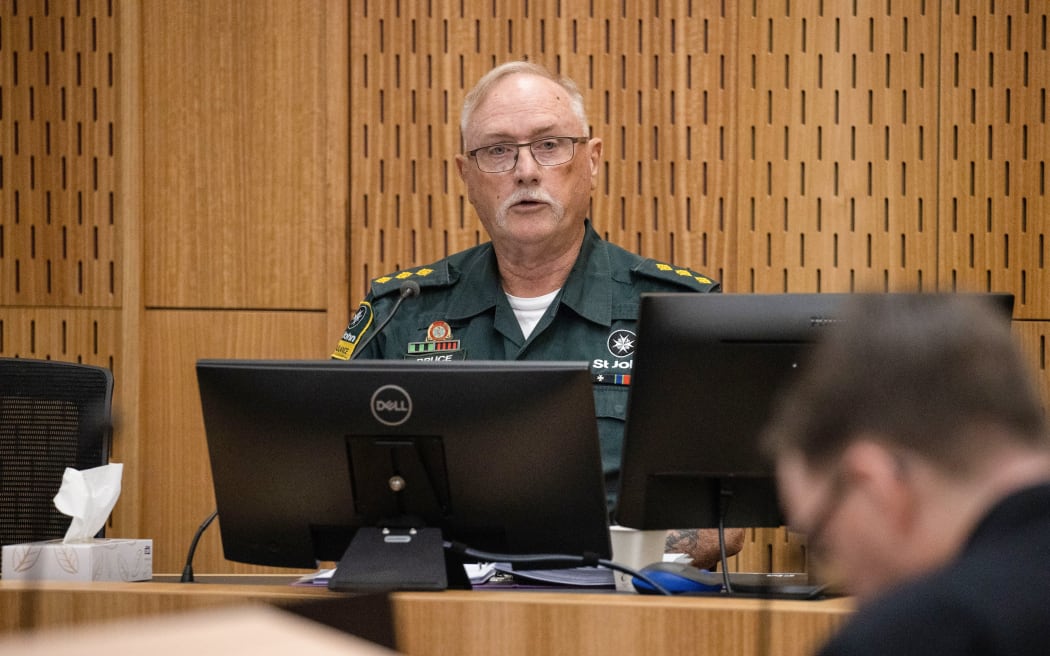
St John's Bruce Chubb. Photo: Stuff / Chris Skelton
Chubb said he was not suggesting it was "okay" that St John did not know where SERT officers were but said it was the practice at the time.
He was not aware of any changes to the SERT policy since the terror attack.
Chubb told the coroner he thought it was "always nice to know" where resources were, to which she replied, "I would suggest it's more than nice to know. I would suggest that St John needs to know".
Chubb earlier told the inquest that he believed general ambulance officers should not have entered either mosque immediately after the shootings because of the safety risk.
Windley said the court was concerned St John ambulance officers had to breach the organisation's policy in order to get an emergency response in place.
"Do you agree that that's fundamentally a problem?" she asked.
"Yes," Chubb replied.
Earlier on Tuesday, Chubb told counsel for families Kathryn Dalziel that the terror attack was a catastrophic event that he did not expect and was never prepared for.
"I don't believe any of my colleagues were either, so it was fundamentally overwhelming," he said.
The inquest will examine the following 10 issues over seven weeks:
- Events of 15 March 2019 from the commencement of the attack until the terrorist's formal interview by police
- Response times and entry processes of police and ambulance officers at each mosque
- Triage and medical response at each mosque
- The steps that were taken to apprehend the offender
- The role of, and processes undertaken by, Christchurch Hospital in responding to the attack
- Coordination between emergency services and first responders
- Whether the terrorist had any direct assistance from any other person on 15 March 2019
- If raised by immediate family, and to the extent it can be ascertained, the final movements and time of death for each of the deceased
- The cause of death for each of the victims and whether any deaths could have been avoided
- Whether Al Noor Mosque emergency exit door in the southeast corner of the main prayer room failed to function during the attack and, if so, why?
The inquest continues.

